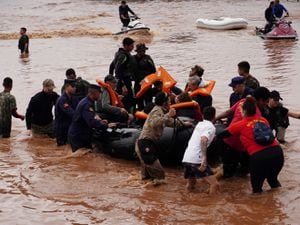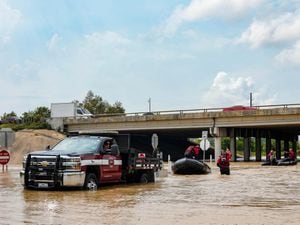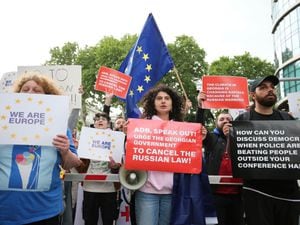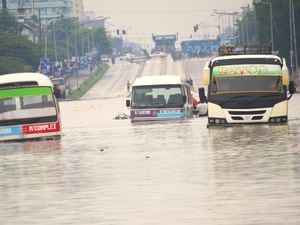Deadly suicide blast casts shadow over Pakistan elections
A total of 31 people were killed in the carnage in the city of Quetta.
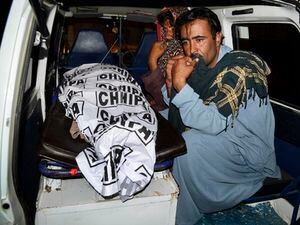
A suicide bomber on a motorcycle has killed at least 31 people outside a busy polling station in the Pakistani city of Quetta, casting a dark shadow on a historic day as people cast their votes in national elections.
The attack in the capital of Baluchistan province underlined the difficulties this majority Muslim nation faces on its journey towards sustained democracy, as it attempts to elect its third consecutive civilian government.
The bombing also wounded 35 people, with several reported to be in critical condition, raising concerns the death toll could rise.

As polls closed, Pakistan’s election commission spokesman Nadeem Qasim said the body had issued a notice to aspiring prime minister Imran Khan, saying his vote could be disqualified after he cast his ballot in front of television cameras, violating “the secrecy of the ballot paper” as enshrined in the constitution.
Images showed a smiling Mr Khan with his ballot paper laid out in front of him as he marked the ballot.
Voting for a national assembly, the lower house of parliament and four provincial assemblies followed a rancorous campaign marked by widespread allegations of manipulation.

Analysts and rights groups have warned of post-election instability and predicted losing parties would cry foul.
The uncertainty of the outcome of the vote – no single party appears assured of a simple majority win – could also lead to a prolonged post-election period that would hamper the forming of the next government.
A witness to the attack in Quetta, Abdul Haleem, who was waiting to cast his ballot, said he saw a motorcycle drive into the crowd of voters just seconds before the explosion. He said his uncle died in the attack.
No-one immediately claimed responsibility for the bombing but local officials were quick to blame the Islamic State group (IS).

Baluchistan also saw the worst violence during election campaigning earlier this month, when a suicide bomber blew himself up at a political rally, killing 149 people, including the candidate Siraj Raisani. Another 400 were wounded. Voting in that constituency has been suspended.
IS claimed responsibility for that attack, though Baluchistan has seen relentless attacks, both by the province’s secessionists and Sunni militants who have killed hundreds of Shias living there.
In recent years, the IS affiliate in the region has emerged as a major force behind violence, often using local Sunni radicals from the outlawed Lashkar-e-Jhangvi to carry out its attacks.
The leading contenders in the election are former cricket star Imran Khan and his right-of-centre Pakistan Tehreek-e-Insaf Party, and the right-of-centre Pakistan Muslim League, the party of disgraced prime minister Nawaz Sharif, who is in jail serving 10 years on corruption charges. His younger brother Shahbaz Sharif has taken control of the party.

Mr Khan’s supporters showered his vehicle with rose petals as he arrived to vote at a polling station near his home suburb in Islamabad. After voting, he appealed on Pakistanis to come out and vote in huge numbers “to save future generations”.
The third-largest party in the running is the left-leaning Pakistan People’s Party, headed by Bilawal Bhutto, the son of late prime minister Benazir Bhutto, who was assassinated by the Pakistani Taliban, a group she had vowed to eradicate.
Election officials say more than 11,000 candidates are vying for 270 seats in Pakistan’s lower house of Parliament and 577 seats in four provincial assemblies.
Voting for two parliamentary seats and six seats in provincial assemblies has been postponed due to attacks on candidates or disqualifications. The first results are expected early on Thursday.
There are more than 105 million eligible voters in Pakistan, 59 million men and 46 million women. Pakistan’s election commission has reminded candidates their elections will be nullified if the female voter turnout does not reach 10%.

